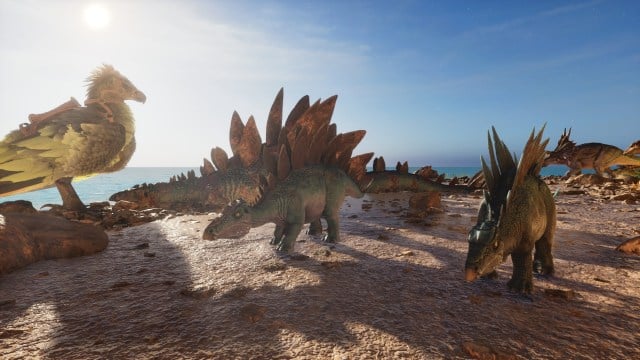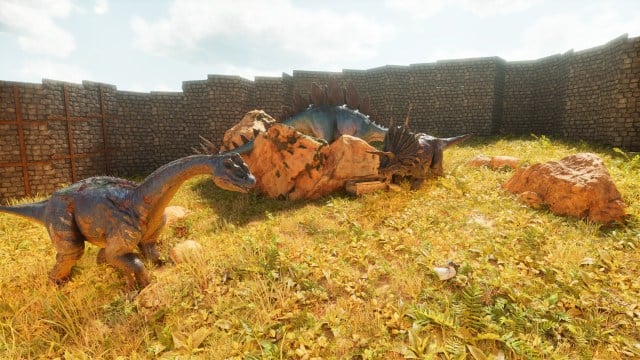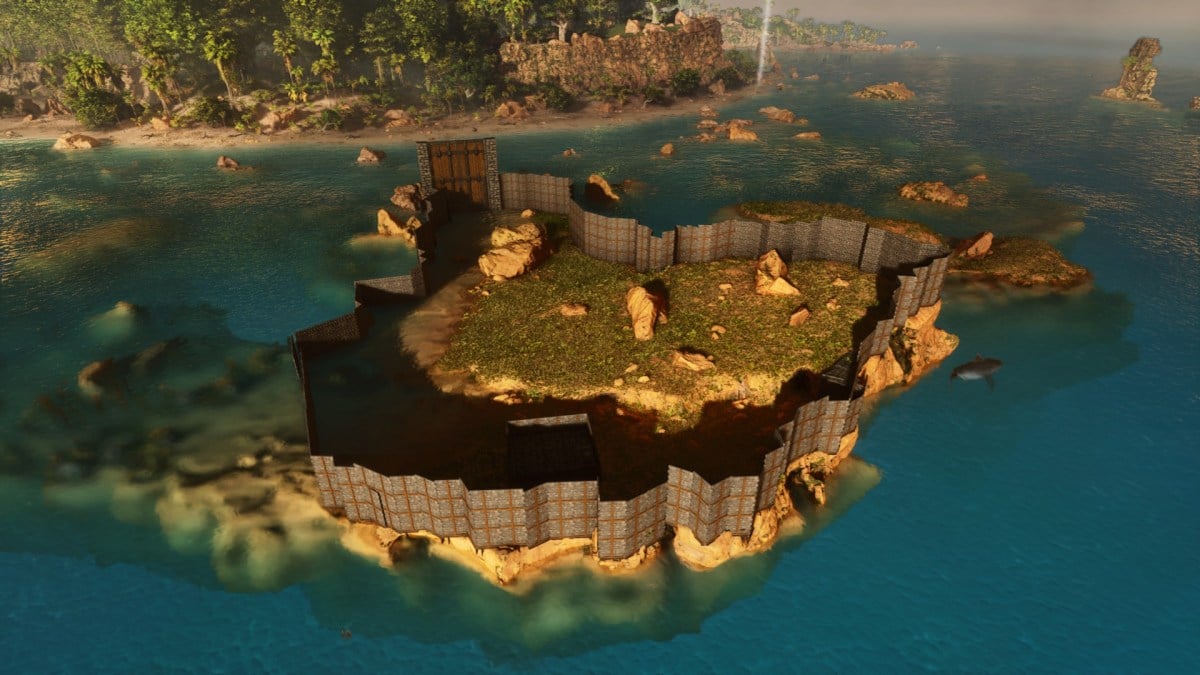To fully experience baby dinos in Ark: Survival Ascended, a new feature for the remaster, I needed to embrace the dark side—though my intentions were pure, I promise.
As I eagerly await the Xbox release of Ark: Survival Ascended so I can play with my friends, I started to think about a challenge I could undertake in a single-player world on PC in the meantime, which is how the idea of a dinosaur orphanage came to fruition.
My goal was simple: create a safe place for orphaned baby dinosaurs to grow, free from the threats of other wild creatures, in a location that was truly their own. After hunting for the right spot, I soon settled on a small island that I blocked off with walls to create a sanctuary.
It was only once I completed my island build that I realized I had inadvertently created the dinosaur version of Alcatraz, complete with deadly sharks circling the water nearby.
Still, it was safe and definitely a better environment for these poor, lonely creatures than the danger-filled swamps, beaches, and forests spread across the landscape. Paradise, my orphanage was not, but at least it was secure.
With part one complete, part two began. Alongside my trusty Argentavis, I combed the map, keeping my eyes peeled for any poor creatures separated from their parents—either from natural causes or much more sinister means.
Blood on my hands

You see, dear reader, the answer as to why The Island is full of orphaned dinos is a simple one. It’s me, hi, I’m the problem.
Due to the mechanics of Ark: Survival Ascended, there are two ways to tame baby dinos. The first is to knock out and tame the parent creature, which is time-consuming and requires a lot of effort. The second, much simpler way is to kill the parent.
There were a couple of situations where I was the rescuer, with the best example being when I swooped in to save a baby Bronto from the clutches of a Spinosaurus that had already torn through the rest of its family.
In most examples, though, I was the reason these dinos were orphans. What use is my island orphanage if I have no orphans to populate it? I’d put a lot of time and effort into my creation, after all, and many of these creatures would have to die anyway to provide resources. I was doing the younger generation a favor.
However, even with the best intentions at heart, I, or more specifically, my forgetfulness, was still a major threat to the baby dinos.
While I was feeding a baby Stegosaurus I had “rescued,” the game gave me a prompt reminder that this particular dino was, in fact, one half of a set of twins—and the other had slowly starved to death on the beach after I forgot to return to collect them. Oops.
Not the hero they need

Not all the deaths I encountered were my fault, though. I witnessed a baby Parasaur mauled by a pack of Raptors, a Spinosaurus scuppered my plans with a baby Phiomia, and Megalodons made swift work of a baby Carbonemys—all of which cemented my reasoning for building the safe haven.
Look, I know I’m at fault for the vast majority of my orphanage’s population even being there, but I mean well. If I kill two parent dinosaurs and save two babies, surely they cancel each other out?
Do I feel any guilt? Honestly, not really. It proved to be a very efficient way of taming creatures I’d not have otherwise got my hands on until much later in my progression, so it’s an approach I’ll probably repeat in any future servers.
So, if you happen to bump into a Survivor casually slaughtering parent dinosaurs and snatching their babies, be sure to say hello.


